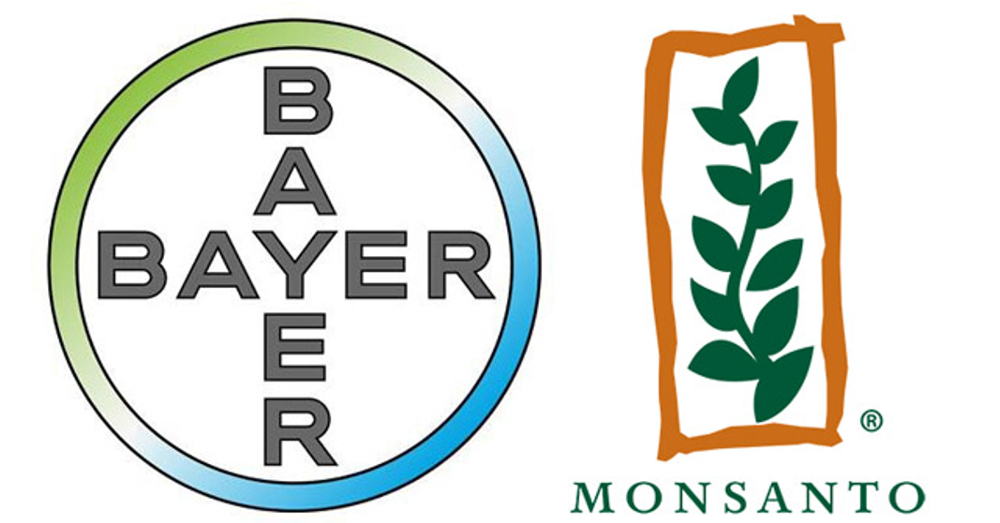
Terminal Cancer Patient Who Sued Monsanto Gets His Day in Court
The so-called evidence supporting the human and environmental safety of the broad-spectrum herbicide Roundup is based on research conducted or paid for primarily by Monsanto itself, and internal documents obtained during legal discovery in lawsuits against the company reveal Monsanto never actually tested the Roundup formulation for carcinogenicity.
July 3, 2018 | Source: Mercola.com | by Dr. Joseph Mercola
According to a 2017 report1 by Monsanto (since merged with Bayer, which has retired the Monsanto name), “Glyphosate-based herbicides are supported by one of the most extensive worldwide human health and environmental effects databases ever compiled for a pesticide product. Comprehensive toxicological and environmental fate studies conducted over the last 40 years have time and again demonstrated the strong safety profile of this widely used herbicide.”
However, the so-called evidence supporting the human and environmental safety of the broad-spectrum herbicide Roundup is based on research conducted or paid for primarily by Monsanto itself, and internal documents2,3 obtained during legal discovery in lawsuits against the company reveal Monsanto never actually tested the Roundup formulation for carcinogenicity.
Evidence also reveals the U.S. Environmental Protection Agency (EPA) has colluded with Monsanto to protect the company’s interests by manipulating and preventing key investigations into glyphosate’s cancer-causing potential.
Glyphosate Linked to Many Health Hazards
In March 2015, the International Agency for Research on Cancer (IARC), a research arm of the World Health Organization (WHO) considered the global gold standard for carcinogenicity studies, reclassified glyphosate as a “probable carcinogen” (Class 2A),4,5 based on “limited evidence” showing the weed killer can cause Non-Hodgkin lymphoma and lung cancer in humans, and “convincing evidence” linking it to cancer in animals.
That same year, following the IARC’s reclassification, California’s Environmental Protection Agency’s Office of Environmental Health Hazard Assessment (OEHHA) announced glyphosate will be listed as a chemical known to cause cancer under Proposition 65, which requires consumer products with potential cancer-causing ingredients to bear warning labels.
Monsanto filed a lawsuit against OEHHA in January 2016 to stop the glyphosate/cancer classification, but a Fresno, California, superior court judge ruled on behalf of the OEHHA in February 2017.
Aside from its carcinogenic potential, independent research, untainted by the influence of Monsanto or the chemical industry as a whole, has also connected glyphosate-based herbicides with a growing list of disturbing health and environmental effects. For example, glyphosate has been shown to:
|
Affect your body’s ability to produce fully functioning proteins |
|
Inhibit the shikimate pathway (found in gut bacteria) |
|
Interfere with the function of cytochrome P450 enzymes (required for activation of vitamin D and the creation of nitric oxide and cholesterol sulfate) |
|
Chelate important minerals |
|
Disrupt sulfate synthesis and transport |
|
Interfere with the synthesis of aromatic amino acids and methionine, resulting in folate and neurotransmitter shortages |
|
Disrupt the human and animal gut microbiome by acting as an antibiotic |
|
Destroy the gut lining, which can lead to symptoms of gluten intolerance |
|
Impair methylation pathways |
|
Inhibit pituitary release of thyroid stimulating hormone, which can lead to hypothyroidism6,7 |
Roundup Is More Toxic Than Glyphosate in Isolation
The highly respected Ramazzini Institute in Italy is presently working on a comprehensive, global glyphosatestudy8 to ascertain its carcinogenicity and chronic toxicity potential. The pilot phase9 has already revealed that daily ingestion of glyphosate at the acceptable daily dietary exposure level set by the EPA alters sexual development in rats, produces changes in the intestinal microbiome, and exhibits genotoxic effects.
What’s worse, tests10 conducted by the U.S. National Toxicology Program (NTP), published just last month, reveal the Roundup formula is far more toxic than glyphosate alone. According to the NTP’s summary of the results, glyphosate formulations significantly alter the viability of human cells by disrupting the functionality of cell membranes. In layman’s terms, Roundup kills human cells.
While first-phase testing did not uncover evidence suggesting Roundup and other glyphosate-based weed killers are carcinogenic, it does show that the formulations are more toxic than glyphosate in isolation — and there’s already evidence showing glyphosate has carcinogenic potential. None of this bodes well for Bayer, which now owns Roundup.
